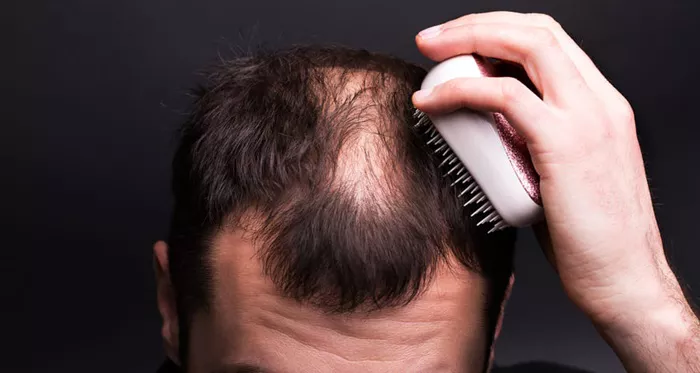Hair loss is a common concern for many individuals, affecting both men and women. Various factors contribute to hair loss, including genetics, hormonal changes, medical conditions, and nutritional deficiencies. One nutrient that has gained attention in recent years for its potential role in hair health is Vitamin D3. In this article, we will explore whether D3 can help with hair loss, how it works, and the evidence supporting its use.
What is Vitamin D3?
Vitamin D3, also known as cholecalciferol, is a fat-soluble vitamin that is crucial for overall health. It is produced in the skin when exposed to sunlight and can also be obtained from certain foods and supplements. Vitamin D3 plays a vital role in calcium absorption, bone health, immune function, and inflammation regulation.
How Does Vitamin D3 Affect Hair Growth?
Vitamin D3 has several mechanisms through which it may influence hair growth:
Regulates Hair Follicle Cycle:
Hair growth occurs in cycles, including growth (anagen), rest (telogen), and shedding (catagen) phases. Vitamin D3 receptors are found in hair follicles, suggesting that the vitamin may play a role in the hair growth cycle. Studies have shown that Vitamin D3 can promote the transition of hair follicles from the resting phase to the growth phase.
Reduces Inflammation:
Inflammation can contribute to hair loss, especially in conditions like alopecia areata and telogen effluvium. Vitamin D3 has anti-inflammatory properties that can help reduce inflammation around hair follicles, potentially preventing hair loss.
See also: What Do Cancer Patients Use to Regrow Their Hair?
Supports Immune Function:
Autoimmune diseases, where the immune system attacks hair follicles, can lead to hair loss. Vitamin D3 supports a healthy immune system, which may help prevent or mitigate autoimmune-related hair loss.
Stimulates Hair Follicle Cells:
Vitamin D3 is known to stimulate keratinocytes, the cells responsible for producing keratin, a protein that makes up hair. This stimulation can lead to stronger, healthier hair growth.
Evidence Supporting Vitamin D3 for Hair Loss
Several studies have investigated the relationship between Vitamin D3 and hair loss, providing insights into its potential benefits:
Alopecia Areata:
Alopecia areata is an autoimmune condition characterized by sudden hair loss. Research has shown that individuals with alopecia areata often have lower levels of Vitamin D3 compared to healthy individuals. Supplementation with Vitamin D3 has been associated with improvement in hair regrowth in some cases.
Telogen Effluvium:
Telogen effluvium is a temporary form of hair loss caused by stress, illness, or nutritional deficiencies. Studies have indicated that individuals with telogen effluvium may benefit from Vitamin D3 supplementation, as it can help regulate the hair growth cycle and reduce inflammation.
Androgenetic Alopecia:
Androgenetic alopecia, also known as male or female pattern baldness, is the most common type of hair loss. Some studies suggest that low Vitamin D3 levels may be linked to an increased risk of androgenetic alopecia. While more research is needed, there is potential for Vitamin D3 to play a role in managing this condition.
General Hair Health:
Adequate Vitamin D3 levels are essential for overall hair health. Deficiency in Vitamin D3 can lead to weakened hair, increased shedding, and slower growth. Ensuring sufficient Vitamin D3 intake can help maintain healthy hair and prevent hair loss.
Sources of Vitamin D3
To support hair health and potentially reduce hair loss, it is important to maintain adequate Vitamin D3 levels. Here are some ways to obtain Vitamin D3:
Sunlight Exposure:
The body naturally produces Vitamin D3 when the skin is exposed to sunlight. Spending time outdoors in the sun for about 10-30 minutes several times a week can help maintain adequate Vitamin D3 levels. However, the amount of sunlight needed varies based on skin type, geographic location, and time of year.
Dietary Sources:
Vitamin D3 can be found in certain foods, including fatty fish (such as salmon, mackerel, and sardines), cod liver oil, egg yolks, and fortified foods (such as milk, orange juice, and cereals).
Supplements:
For individuals who have difficulty obtaining enough Vitamin D3 from sunlight and diet, supplements are available. Vitamin D3 supplements come in various forms, including capsules, tablets, and liquid drops. It is important to consult with a healthcare provider before starting any supplementation to determine the appropriate dosage.
Recommended Dosage of Vitamin D3
The recommended daily intake of Vitamin D3 varies based on age, sex, and individual health needs. General guidelines suggest:
Infants (0-12 months): 400-1,000 IU (International Units) per day
Children (1-18 years): 600-1,000 IU per day
Adults (19-70 years): 600-2,000 IU per day
Adults (71 years and older): 800-2,000 IU per day
Pregnant and breastfeeding women: 600-2,000 IU per day
Higher doses may be necessary for individuals with Vitamin D3 deficiency, but these should be determined and monitored by a healthcare provider.
Potential Side Effects and Risks
While Vitamin D3 is generally safe when taken within recommended limits, excessive intake can lead to toxicity. Symptoms of Vitamin D3 toxicity include nausea, vomiting, weakness, and serious complications such as kidney damage. It is important to follow recommended dosages and consult with a healthcare provider before starting any supplementation, especially for high doses.
Conclusion
Vitamin D3 plays a crucial role in overall health, including hair health. Emerging evidence suggests that maintaining adequate Vitamin D3 levels may help reduce hair loss and promote healthy hair growth. It can regulate the hair follicle cycle, reduce inflammation, support immune function, and stimulate hair follicle cells. To achieve optimal Vitamin D3 levels, a combination of sunlight exposure, dietary sources, and supplements may be necessary. However, it is important to consult with a healthcare provider to determine the appropriate dosage and avoid potential side effects. By ensuring sufficient Vitamin D3 intake, individuals may improve their hair health and address certain types of hair loss.
You May Be Interested In

